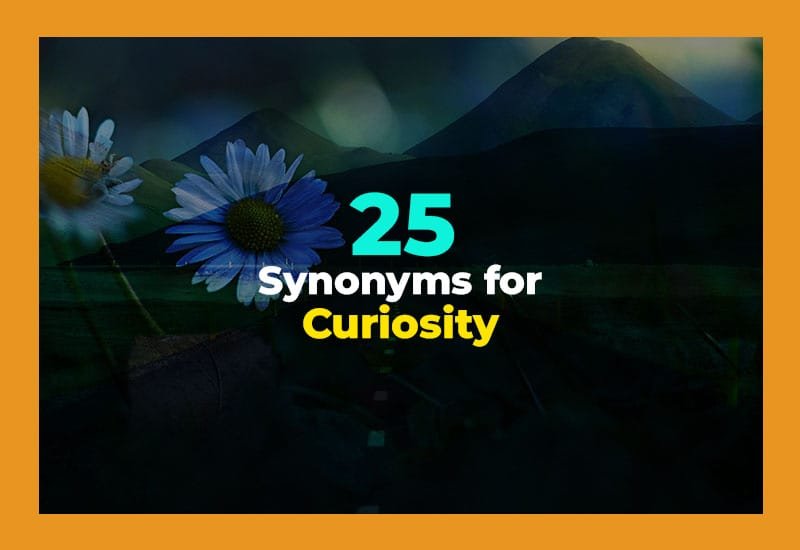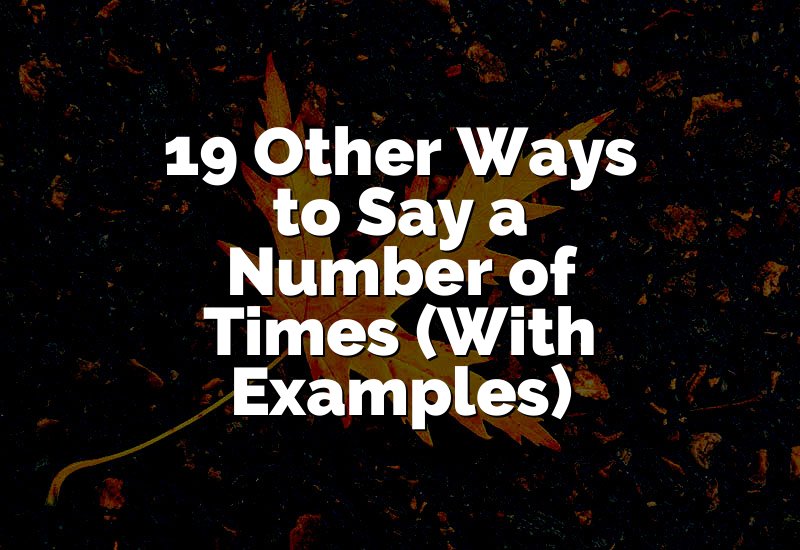When you think about curiosity, it's that urge to know more, explore, and ask questions. Some people might call it inquisitiveness, interest, or even nosiness depending on the situation. In this article, we'll dive into 16 synonyms for curiosity and show you how to use them in real sentences, so you'll never run out of ways to express this feeling.
| Synonym | Meaning | Example |
|---|---|---|
| Inquisitiveness | A strong desire to learn or know things | Her inquisitiveness led her to explore every corner of the museum. |
| Interest | A feeling of wanting to learn or know about something | His interest in astronomy grew after visiting the planetarium. |
| Nosiness | Being too eager to know other people’s business | The neighbor’s nosiness annoyed everyone on the street. |
| Inquiring mind | A mindset always asking questions and seeking answers | She has an inquiring mind that never rests. |
| Eagerness | Strong enthusiasm to know or experience something | His eagerness to try new foods made the trip more fun. |
| Wonder | A feeling of amazement and curiosity | The child's wonder at the fireworks was contagious. |
| Prying | Trying to find out information that is private | Stop prying into her personal life. |
| Questioning | Regularly asking questions to learn | His questioning approach helped uncover the truth. |
| Investigative spirit | A drive to explore and uncover details | Her investigative spirit made her a great journalist. |
| Probing | Carefully examining or asking to understand | The detective's probing questions revealed the hidden story. |
| Exploratory nature | Inclination to explore ideas or places | His exploratory nature led him to travel the world. |
| Analytical mind | Using logic and observation to understand | An analytical mind helps solve complex problems. |
| Intrigue | Fascination that leads to curiosity | The mysterious letter sparked her intrigue. |
| Studiousness | A serious interest in learning | His studiousness showed in the hours he spent reading. |
| Fact-finding | Seeking accurate information | The team's fact-finding mission uncovered the truth. |
| Investigative curiosity | Combining curiosity with investigation | Investigative curiosity drove her to research every detail. |
16 Different Ways to Say CURIOSITY: Another Word for Curiosity
Inquisitiveness
Inquisitiveness is perfect when you want to describe someone who actively seeks knowledge. It's not just about asking questions but about genuinely enjoying the process of learning. People with inquisitiveness tend to dig deeper into subjects and explore things others might overlook. Use it when highlighting someone's love for discovery or research. It's often a positive trait in academics, hobbies, or professional life. The best part about inquisitiveness is that it encourages critical thinking and creativity, making it a skill that benefits every part of life.
- She approached the experiment with pure inquisitiveness.
- His inquisitiveness about history led him to become a historian.
- Children often show incredible inquisitiveness in their daily lives.
Interest
Interest is a broad term that works in almost every situation. It shows someone is engaged or wants to learn more about a topic, hobby, or person. Interest is versatile—it can be casual or deep, making it suitable for both conversations and writing. Highlight someone's interest when describing motivation or curiosity without sounding too intense. Interest is a great word for situations where you want to convey genuine attention or enthusiasm. It fits perfectly for storytelling, education, and work environments where curiosity drives growth.
- He showed interest in the new project immediately.
- Her interest in art led her to visit galleries often.
- Developing interest in science can start with simple experiments.
Nosiness
Nosiness leans toward the more intrusive side of curiosity. It's used when someone is a bit too eager to know things that might not concern them. While it can be playful, it can also be annoying if overdone. Use nosiness to describe situations where curiosity crosses personal boundaries or makes others uncomfortable. It's often a term used in social settings, gossip, or everyday life. Nosiness adds humor and caution when describing human behavior, making it a handy word in storytelling or casual conversations.
- Her nosiness got her caught reading someone else's messages.
- The nosiness of the neighbor created awkward situations.
- Nosiness sometimes leads to discovering unexpected secrets.
Inquiring mind
An inquiring mind is about constant questioning and seeking understanding. It highlights someone who never stops learning or exploring ideas. People with an inquiring mind often analyze situations carefully and are highly curious about the world around them. This phrase fits academic settings, research, or discussions about intelligence and creativity. Using it emphasizes thoughtful curiosity rather than casual interest. An inquiring mind drives innovation, problem-solving, and continuous personal growth, making it a valuable trait to encourage in yourself or others.
- Her inquiring mind made her a natural scientist.
- Students with an inquiring mind excel in discussions.
- Developing an inquiring mind can open new opportunities.
Eagerness
Eagerness conveys excitement to know or experience something. It shows energy and anticipation in learning or exploring. This word works well when describing positive curiosity or enthusiasm. Eagerness is best used in situations that involve action, discovery, or participation. It's a term that highlights motivation, drive, and joy in finding out new things. People appreciate eagerness because it shows passion and readiness to engage. This word adds emotion and movement to descriptions of curiosity, making stories or articles more dynamic.
- His eagerness to learn surprised everyone.
- She approached the workshop with eagerness.
- Eagerness can turn curiosity into achievement.
Wonder
Wonder captures the magical side of curiosity. It's about amazement and a desire to explore the unknown. Wonder works well in writing that highlights beauty, awe, or fascination. It's ideal for children, travel stories, and moments of inspiration. Wonder sparks imagination and encourages questions, making it perfect for creative thinking and storytelling. This synonym emphasizes emotion alongside curiosity, creating vivid mental images. It can be used to describe reactions to nature, art, science, or anything that excites interest and amazement.
- The child watched the stars in wonder.
- Her wonder about ancient cultures led to traveling.
- Nature often fills people with wonder.
Prying
Prying is the act of seeking information in a more intrusive way. It can have a negative tone but is useful when describing nosy behavior. This word fits gossip, investigations, or situations where boundaries are crossed. Prying emphasizes digging deeper than what is polite, showing intense curiosity. Writers can use it for tension, humor, or social commentary. Prying conveys persistence and attention to detail, making it useful for storytelling or reporting.
- Stop prying into her diary.
- His prying questions annoyed everyone at the meeting.
- Prying can sometimes uncover hidden truths.
Questioning
Questioning highlights actively asking questions to understand something. It's a neutral and versatile word, useful in learning, investigation, or analysis. People with a questioning attitude are open-minded and willing to explore different perspectives. Questioning encourages discussion, critical thinking, and discovery. It works well in classrooms, research, or personal development contexts. Using questioning emphasizes thoughtfulness and curiosity combined, making it a valuable trait in many areas of life.
- Her questioning nature helped solve the mystery.
- Questioning assumptions can lead to better decisions.
- Students benefit from questioning everything they read.
Investigative spirit
Investigative spirit describes a drive to uncover facts or explore deeply. It's active and purposeful, showing curiosity combined with determination. Perfect for journalists, detectives, and researchers, this term signals persistence and attention to detail. Use investigative spirit when highlighting methodical curiosity that solves problems or discovers truths. It conveys both intelligence and motivation. This word is great for professional or academic contexts where curiosity leads to significant results.
- His investigative spirit uncovered the hidden evidence.
- The team's investigative spirit solved the cold case.
- Investigative spirit is essential for scientific breakthroughs.
Probing
Probing means carefully examining or asking questions to understand something fully. It implies depth and thoroughness, not just casual interest. Probing is ideal for research, interviews, or problem-solving. It conveys intelligence and persistence, showing that curiosity leads to insight. Writers often use probing to describe investigative actions or mental exploration. This word adds sophistication to descriptions of curiosity, highlighting thoughtful inquiry.
- The detective's probing questions revealed the truth.
- Her probing mind never left a detail unchecked.
- Probing deeper can uncover hidden patterns.
Exploratory nature
Exploratory nature shows a desire to try new things and discover the unknown. It's active and adventurous, fitting travel, learning, or creative work. People with an exploratory nature are often risk-takers who embrace uncertainty. This synonym highlights curiosity in action, encouraging growth and experience. It's useful when describing personalities that seek novelty or innovation. Exploratory nature is inspiring and often leads to personal and professional development.
- His exploratory nature led him to visit remote places.
- She approached new ideas with exploratory nature.
- Exploratory nature helps build resilience and knowledge.
Analytical mind
Analytical mind refers to curiosity that uses logic and reasoning to understand things. It's perfect for problem-solving, research, and planning. People with an analytical mind dissect information, identify patterns, and make informed decisions. This synonym emphasizes intelligence and structured curiosity. Analytical mind works well in education, business, or personal growth contexts. It signals thoughtful investigation and careful evaluation, making it a highly valued trait.
- Her analytical mind solved complex puzzles.
- An analytical mind can improve decision-making.
- Using an analytical mind uncovers hidden connections.
Intrigue
Intrigue is fascination that leads to deeper curiosity. It often involves mystery or unusual situations that spark interest. Intrigue is ideal in storytelling, history, or art contexts. This word conveys emotional engagement alongside curiosity, making people want to know more. Intrigue can create suspense or highlight captivating personalities. Using intrigue adds flair and intensity to descriptions of curiosity, drawing readers into the subject.
- The novel's plot filled her with intrigue.
- Historical events often spark intrigue among students.
- Intrigue drives people to explore the unknown.
Studiousness
Studiousness is about focused attention on learning or understanding. It shows dedication and a serious approach to curiosity. This synonym fits academic or professional settings where knowledge is pursued diligently. Studiousness highlights commitment and persistence in acquiring information. It can describe both children and adults who are passionate about learning. Using this word emphasizes the discipline side of curiosity, showing results through effort.
- His studiousness impressed his teachers.
- Studiousness helps achieve academic success.
- Practicing studiousness can improve skills over time.
Fact-finding
Fact-finding is actively seeking accurate information. It combines curiosity with verification, ideal for research or problem-solving. Fact-finding works well in professional, academic, or journalistic contexts. It highlights methodical and responsible curiosity. Using fact-finding emphasizes thoroughness, attention to detail, and reliability. This synonym is perfect for situations where uncovering truth matters most.
- The team conducted a fact-finding mission.
- Fact-finding is essential for accurate reporting.
- Engaging in fact-finding prevents misinformation.
Investigative curiosity
Investigative curiosity blends the desire to know with investigation. It's focused, persistent, and often professional. People with investigative curiosity uncover hidden details or solve complex problems. This term highlights intelligence, persistence, and careful observation. Using investigative curiosity emphasizes active learning and discovery. It's great for writers, researchers, or anyone exploring new ideas. This synonym conveys curiosity that leads to meaningful results.
- Her investigative curiosity led to a breakthrough.
- Investigative curiosity uncovers hidden patterns.
- Cultivating investigative curiosity improves research outcomes.

Final Thoughts
Exploring these 16 alternatives for curiosity opens up many ways to describe interest, wonder, and investigation. Each synonym fits different situations, from playful nosiness to deep investigative thought. Using these words enhances writing and communication, making it engaging and precise.









